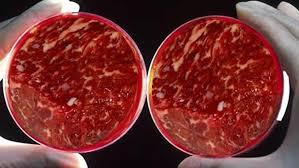
Breaking News
 Tucker to Release Information on Butler Assassination – Here's Our List of What is Missing
Tucker to Release Information on Butler Assassination – Here's Our List of What is Missing
 BREAKING: Prison Staffers FIRED After Illegally Breaking Into Maxwell's Attorney-Client Emails..
BREAKING: Prison Staffers FIRED After Illegally Breaking Into Maxwell's Attorney-Client Emails..
 RANCHERS UNDER FIRE | We"ll never change the world until everyone sits in the dark...
RANCHERS UNDER FIRE | We"ll never change the world until everyone sits in the dark...
Top Tech News
 Blue Origin New Glenn 2 Next Launch and How Many Launches in 2026 and 2027
Blue Origin New Glenn 2 Next Launch and How Many Launches in 2026 and 2027
 China's thorium reactor aims to fuse power and parity
China's thorium reactor aims to fuse power and parity
 Ancient way to create penicillin, a medicine from ancient era
Ancient way to create penicillin, a medicine from ancient era
 Goodbye, Cavities? Scientists Just Found a Way to Regrow Tooth Enamel
Goodbye, Cavities? Scientists Just Found a Way to Regrow Tooth Enamel
 Scientists Say They've Figured Out How to Transcribe Your Thoughts From an MRI Scan
Scientists Say They've Figured Out How to Transcribe Your Thoughts From an MRI Scan
 SanDisk stuffed 1 TB of storage into the smallest Type-C thumb drive ever
SanDisk stuffed 1 TB of storage into the smallest Type-C thumb drive ever
 Calling Dr. Grok. Can AI Do Better than Your Primary Physician?
Calling Dr. Grok. Can AI Do Better than Your Primary Physician?
 HUGE 32kWh LiFePO4 DIY Battery w/ 628Ah Cells! 90 Minute Build
HUGE 32kWh LiFePO4 DIY Battery w/ 628Ah Cells! 90 Minute Build
 What Has Bitcoin Become 17 Years After Satoshi Nakamoto Published The Whitepaper?
What Has Bitcoin Become 17 Years After Satoshi Nakamoto Published The Whitepaper?
Mutant meat enters Canada's food supply... and shocked Americans get a nasty surprise

Health officials recently scrapped a 22-year-old policy that classified cloned meat as novel foods, removing pre-market safety assessments and allowing these products to be sold with no disclosure.
The move has sparked surprise in the US, after it was revealed that similar products have quietly been on shelves for years without labels.
The FDA approved meat and milk from cloned cattle, swine and goats, along with their offspring, in January 2008.
Nearly two decades later, many Americans are only now realizing that cloned meat is part of the food supply.
Social media users have reacted with shock and disbelief, calling the situation unacceptable.
Some argued that if cloned meat is allowed, it must at least be clearly labeled with its origin and production method.
Others claimed they had unknowingly purchased cloned products and suggested the FDA had failed American consumers.
Many Americans oppose cloned meat due to concerns about animal welfare, food safety, and ethical or religious objections.
Opponents have highlighted the high rates of suffering in the animals, including health problems and miscarriages, and the risk of antibiotics or hormones entering the food supply.
Ethical objections often include a general unease with the technology and fears that it could lead to human cloning.
Even more, cloned meat is not allowed for food production in Europe due to a ban on the cloning of farm animals and the sale of products derived from them.
The process to make cloned meat begins with the creation of a genetically identical copy of a 'desirable' animal.
That is then bred through normal reproduction, and its offspring eventually enter the food chain as meat, without shoppers having any way to know.
Health Canada has planned to roll out the change next year.
The move has sparked outrage from duBreton, a major Certified Humane and organic pork producer, which sounded the alarm to consumers, saying: 'People have the right to choose for themselves.

 How Does the End Begin?
How Does the End Begin? Unbanked In A Connected World
Unbanked In A Connected World

